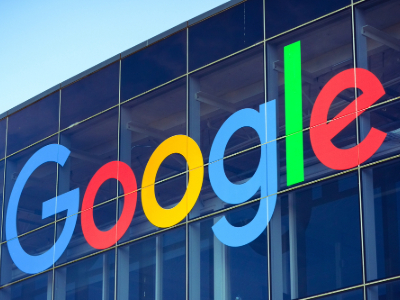In the annals of tech history, there are moments that define entire eras, shaping the trajectory of companies and industries. One such moment occurred in the late 1990s when George Bell, the CEO of Excite, had the opportunity to acquire Google for a mere $750,000. This article delves into the events surrounding this fateful decision, the factors influencing it, and the far-reaching consequences that followed.
The Backstory: Excite’s Rise and Google’s Emergence
In the mid-1990s, Excite emerged as one of the leading search engines, alongside competitors like Yahoo and AltaVista. Founded in 1994, Excite quickly gained traction, attracting millions of users and investors’ attention.
Meanwhile, Larry Page and Sergey Brin, two Stanford University students, were busy developing a revolutionary search engine called Backrub, which later evolved into Google. With its innovative PageRank algorithm and focus on delivering relevant search results, Google soon began to disrupt the search engine market.
The Offer: Google’s Acquisition Proposal
As Google gained momentum, its founders sought to sell the company and focus on their research projects. In 1999, they approached Excite with a buyout offer of $1 million, later negotiated down to $750,000. The offer included the option to license Google’s search technology, which would have provided Excite with a significant competitive advantage in the search engine market.
The Decision: George Bell’s Fateful Choice
In the spring of 1999, George Bell, then CEO of Excite, faced a pivotal decision: whether to acquire Google or pass on the opportunity. Despite recognizing Google’s innovative technology and potential for growth, Bell ultimately decided to decline the offer. Several factors influenced his decision:
1. Price Sensitivity: At $750,000, the acquisition price appeared steep for Excite, a company already grappling with financial challenges amidst a fiercely competitive market.
2. Lack of Vision: Bell failed to fully grasp the long-term potential of Google’s search technology and underestimated its future impact on the internet landscape.
3. Strategic Focus: Excite was pursuing a different strategic direction, prioritizing the expansion of its portal offerings and diversification of revenue streams through partnerships and acquisitions.
The Aftermath: Google’s Ascendance and Excite’s Decline
Following Excite’s rejection, Google embarked on a meteoric rise to become one of the most successful and influential companies in the world. With its superior search technology, user-centric approach, and relentless focus on innovation, Google dominated the search engine market and expanded into various other industries, including advertising, cloud computing, and mobile technology.
Meanwhile, Excite struggled to maintain its relevance amidst mounting competition and shifting user preferences. The company faced financial difficulties, leadership changes, and strategic missteps, ultimately leading to its decline and acquisition by Ask Jeeves in 2004.
Lessons Learned: The Importance of Vision and Strategic Decision-Making
George Bell’s decision to pass on the Google deal offers valuable insights and lessons for business leaders and entrepreneurs:
1. Embrace Innovation: Recognize the potential of disruptive technologies and innovative ideas, even if they appear unconventional or risky initially.
2. Think Long-Term: Consider the future implications of strategic decisions and prioritize long-term growth and sustainability over short-term gains.
3. Stay Agile: Adapt to changing market dynamics and be willing to pivot strategies based on emerging trends, customer preferences, and competitive pressures.
4. Value Proposition: Understand the value proposition of potential acquisitions and partnerships, evaluating not just the price tag but also the strategic fit and potential synergies.
George Bell’s decision to pass on the Google deal stands as a watershed moment in tech history, underscoring the importance of vision, strategic decision-making, and embracing innovation. While Excite’s rejection of Google may have been a missed opportunity, it serves as a potent reminder for business leaders and entrepreneurs navigating the complexities of the tech industry. As the digital landscape continues to evolve, the legacy of the Google deal that got away serves as a cautionary tale, urging vigilance, open-mindedness, and forward-thinking in the pursuit of success.
For more information on how to structure your business for growth and how to develop a strategic plan for scale, contact FMS Franchise: www.FMSFranchise.com

